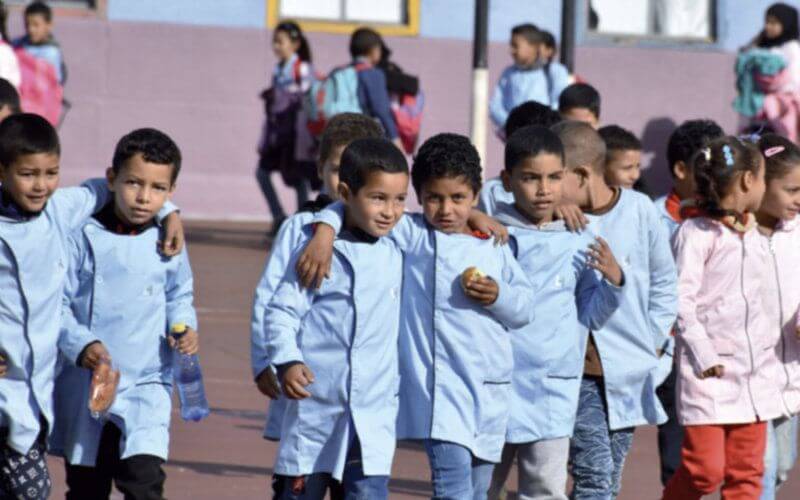Morocco Considers Options to Salvage School Year Amid COVID-19 Crisis

The evolution of the health crisis shaking Morocco raises fears of a probable blank year among parents and students. But the government still has two cards to play to save the year, according to a source at the department of Saaïd Amzazi.
The scenario of a blank year is impossible, according to the Ministry of Education, which indicates that in the first instance, "70% of the school program has already been delivered before the suspension of classes and a distance learning system has been put in place". So there is no chance that the remaining 30% of the program will not be completed, despite the current health crisis. Even if the ministry has some leeway, it reassures that "any decision made by the ministry will take into account the interests of the students and ensure that their results are not impacted," reports LesEcos.ma.
Secondly, the ministry explains that the production capacity of digital resources has just been increased, as well as the creation of new studios in two dedicated centers in Rabat. The twelve regional academies of education and training (AREF) have also been mobilized to strengthen the system, according to the supervisory ministry, which indicated that "the machine is running despite the glitches of the start and the challenge of accelerating the production of digital educational resources".
Pending the end of the crisis, the supervisory department is trying to anticipate by preparing as many lessons as possible. "The school program will be taught remotely until the resumption of classes, even during the two weeks of vacation," reassures the ministry, which points out that in rural areas, "teachers are preparing and printing lessons and exercises to distribute them to students at their homes".
Private education also benefits from the system put in place by the Ministry of National Education, but without the adhesion of students and parents, it could not thrive. "It is difficult to adapt to the new situation and to manage the monitoring of distance learning," according to Fatima, mother of two children enrolled in 6th grade of primary school and 1st year of baccalaureate. "If my eldest son is well aware of the importance of following his studies remotely and of properly preparing his regional exam, my daughter, on the other hand, is still unable to adapt well even though her private school has set up a digital teaching platform," she adds.
While Aymen, 16, diligently follows the courses delivered by some of his teachers via WhatsApp, this is not the case for all his classmates, "some of whom have not yet joined the new teaching method," he said.
Related Articles
-

Deadly ’Royal Honey’: Moroccan Man Dies After Consuming Tainted Sexual Enhancement Product
27 August 2025
-

Algeria Warns of ’Unprecedented’ Media Attacks Threatening National Security
27 August 2025
-

Africa’s Millionaire Map: Morocco Emerges as Wealth Hub, Trailing South Africa and Egypt
27 August 2025
-

Morocco’s Airport Revolution: $4.4 Billion Boost for Marrakech and Agadir Hubs
27 August 2025
-

EU Unveils Ambitious Mediterranean Pact to Boost Trade and Counter Global Rivals
27 August 2025